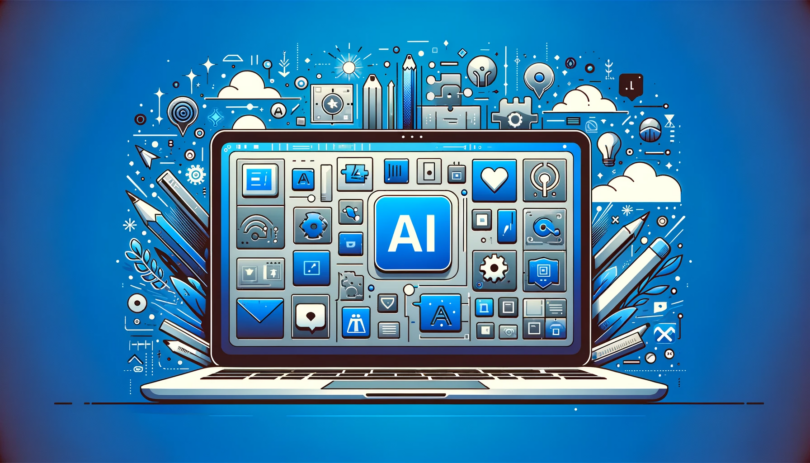Artificial intelligence (AI) has become a game-changer in today’s rapidly evolving digital landscape. The interest in AI-driven solutions for businesses, especially in content creation, is skyrocketing. From streamlining workflows to generating creative outputs, AI tools are changing the way industries operate. In this article, we’ll explore how AI-powered tools are making a difference in business strategies, automating tasks, and enhancing content creation.
The Rise of AI-Powered Tools
The rise of AI-powered tools is nothing short of revolutionary. But what exactly does this mean? Essentially, AI tools are designed to automate tasks that once required human intervention. They’re taking over repetitive duties and freeing up time for more strategic activities.
From automating customer service through chatbots to enhancing data analysis, AI is reshaping industries. One of the main reasons businesses are adopting AI tools is their ability to process massive amounts of data quickly. Imagine the time saved by having an AI system do the work instead of manually sifting through numbers.
How AI Tools Are Transforming Businesses
AI tools are not only automating tasks, but they’re also optimizing them. Businesses can now use AI to make informed decisions based on real-time data. This transformation is evident across industries like finance, healthcare, and retail.
For instance, AI-powered predictive analytics can help businesses anticipate customer needs and adjust their marketing strategies accordingly. Retailers use AI to analyze shopping behaviors and suggest personalized product recommendations. In healthcare, AI tools are being used to predict patient outcomes, speeding up diagnostics and treatment plans.
Why Businesses Are Adopting AI Solutions
The primary reason businesses are so keen on AI solutions is simple: efficiency. AI can process and analyze data at a rate far beyond human capability. Not only does this save time, but it also minimizes errors. Companies can now rely on AI to generate insights, allowing them to focus on more critical tasks, like strategy development and customer relationships.
Additionally, AI-powered tools can adapt to changing circumstances, learning from data inputs to improve performance over time. This makes them highly versatile and valuable in a world where business needs are constantly evolving.
AI Tools in Content Creation
Content creation has always been a time-consuming process, but AI is changing that. With AI-powered tools, content creators can now generate articles, blogs, social media posts, and even video scripts in a matter of minutes. AI systems like GPT (Generative Pre-trained Transformer) can produce high-quality content that rivals human writers.
These tools analyze trends, audience behavior, and keywords to craft content that is not only engaging but also optimized for search engines. It’s no wonder businesses are flocking to these solutions to streamline their content strategies.
Automating the Writing Process with AI
Writing used to be a labor-intensive process, but AI-powered tools are making it easier than ever before. Tools like Jasper, Writesonic, and ChatGPT can write compelling articles, blog posts, and even ad copy in minutes. This automation allows businesses and content creators to churn out more material without sacrificing quality.
These AI tools rely on machine learning algorithms to understand language patterns and context, ensuring that the output is both relevant and engaging. Writers can now focus on refining ideas rather than starting from scratch, making the creative process faster and more efficient.
AI Tools for SEO Optimization
One of the most significant advantages of using AI-powered tools in content creation is their ability to optimize for search engines. AI tools like SurferSEO and MarketMuse analyze top-ranking content and suggest improvements to boost your rankings.
From keyword analysis to content structure, AI tools help writers create content that ranks higher on Google. This means businesses can now attract more organic traffic, resulting in higher conversion rates.
Enhancing Content Strategy with AI
AI is not just about writing the content—it’s about strategizing too. AI-powered tools are being used to analyze market trends, identify content gaps, and suggest topics that are likely to perform well. This data-driven approach ensures that businesses can stay ahead of the competition by consistently producing high-performing content.
Moreover, AI can help track the performance of existing content, identifying what’s working and what’s not. With these insights, businesses can fine-tune their strategies and make data-driven decisions to maximize their content’s impact.
AI-Powered Tools in Digital Marketing
Digital marketing is another industry being transformed by AI tools. From automating email marketing campaigns to optimizing social media ads, AI is making marketing more efficient and effective. Tools like HubSpot and Salesforce offer AI-driven solutions for targeting specific audiences, managing leads, and analyzing campaign performance.
For example, AI-powered chatbots engage with potential customers in real-time, providing instant responses and personalized recommendations. This improves customer satisfaction and increases conversion rates.
AI Tools in Social Media Management
Managing multiple social media accounts can be overwhelming, but AI tools are here to help. Platforms like Hootsuite and Sprout Social use AI to schedule posts, analyze engagement, and even suggest content based on user behavior.
With AI handling the heavy lifting, social media managers can focus on interacting with their audience and creating content that resonates with their followers. The insights generated by AI tools also allow businesses to refine their social media strategies for maximum impact.
AI in Visual Content Creation
AI-powered tools are also making strides in visual content creation. Platforms like Canva and Lumen5 use AI to generate stunning graphics and videos with minimal effort. By analyzing user preferences, these tools suggest design elements that align with your brand’s identity.
Incorporating AI into visual content creation ensures that businesses can produce eye-catching visuals without needing an extensive design team. This is especially useful for small businesses looking to maintain a professional image on a budget.
AI Tools in Video Production
Video content is more important than ever, and AI is stepping up to make production faster and easier. Tools like Magisto and Pictory use AI to create professional-grade videos by analyzing user data and editing raw footage automatically.
These AI-powered tools are particularly useful for businesses that want to produce high-quality video content without hiring a full production team. With the growing importance of video in digital marketing, AI tools are helping brands stay competitive.
The Role of AI in Customer Support
Customer support is one of the areas where AI-powered tools are making the biggest impact. AI chatbots and virtual assistants can handle customer queries 24/7, offering instant responses and resolving issues quickly.
This not only improves customer satisfaction but also reduces the workload for human agents. Tools like Zendesk and Freshdesk incorporate AI to manage customer interactions, allowing businesses to scale their support services without increasing costs.
AI Tools for Data Analysis
Data is at the heart of decision-making, and AI-powered tools are making it easier to process and analyze that data. Platforms like IBM Watson and Google Cloud AI analyze massive datasets to provide actionable insights.
These tools help businesses understand customer behavior, predict trends, and make informed decisions. With AI handling the heavy lifting, companies can focus on strategy and innovation.
AI Tools for Predictive Analytics
Predictive analytics is another area where AI is making waves. By analyzing past data, AI-powered tools can forecast future outcomes, helping businesses prepare for what’s ahead. This is particularly valuable in industries like finance, healthcare, and logistics, where anticipating trends can mean the difference between success and failure.
For instance, banks are using AI to predict market trends, while healthcare providers use predictive analytics to forecast patient outcomes and improve treatment plans.
Challenges of Implementing AI Tools
Despite the benefits, implementing AI-powered tools does come with challenges. One of the biggest hurdles is the cost. AI tools can be expensive to integrate, especially for small businesses with limited budgets. Additionally, there’s a learning curve involved in understanding how to use these tools effectively.
Another concern is the fear that AI will replace human jobs. While AI can automate many tasks, it’s important to remember that human creativity and decision-making will always be invaluable.
Conclusion
AI-powered tools are revolutionizing industries across the board, from business processes to content creation. They offer unparalleled efficiency, optimization, and innovation. While there are challenges in adoption, the benefits far outweigh the drawbacks.
As AI technology continues to evolve, its role in shaping the future of industries will only grow. Whether you’re a small business owner, content creator, or part of a large enterprise, AI-powered tools are a must-have to stay competitive in today’s fast-paced world.
FAQs
1. How do AI-powered tools help in content creation?
AI-powered tools assist content creators by automating writing tasks, optimizing content for SEO, and providing insights into audience behavior.
2. Can AI tools replace human writers?
While AI tools can generate high-quality content, they cannot fully replace the creativity and personal touch that human writers bring to the table.
3. Are AI tools expensive to implement?
The cost of AI tools varies. While some AI solutions can be expensive, there are affordable options for small businesses and content creators.
4. Do AI tools work in all industries?
Yes, AI tools are versatile and can be applied in various industries, including healthcare, finance, retail, and marketing.
5. What are the risks of using AI-powered tools?
The primary risks include the cost of implementation and the potential loss of jobs due to automation. However, with proper integration, AI can enhance human capabilities rather than replace them.






